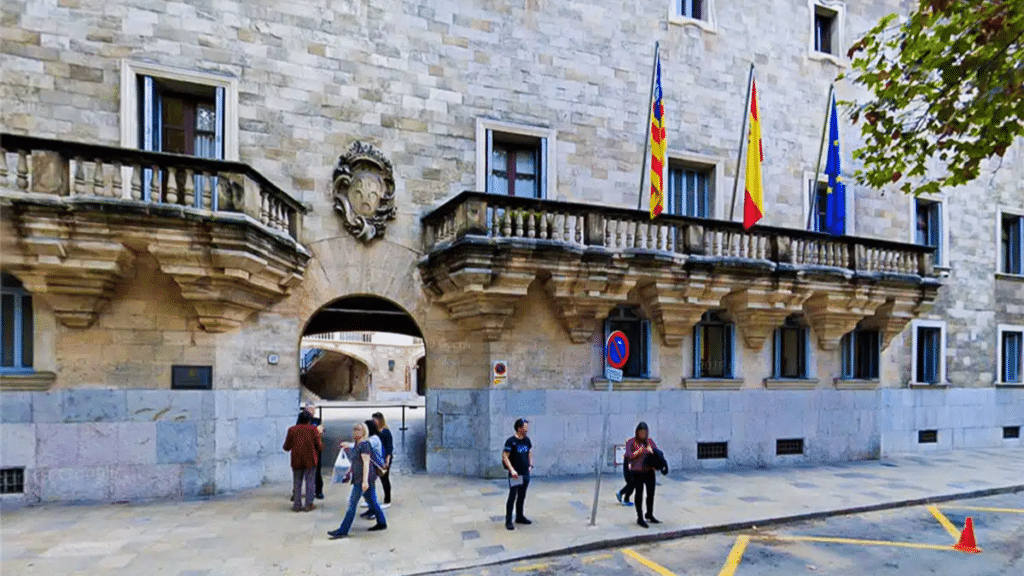The Provincial Court of Palma de Mallorca has upheld the jurisdiction of the Spanish courts to try the case against eight British citizens who lured British tourists into filing false claims in the courts of the United Kingdom for food poisoning “suffered” during their holidays in hotels in Mallorca.
In this way, they allegedly managed to swindle more than 200,000 euros, which has been documented to date. The total damage suffered will be proven in court. The losses incurred by the hotels and insurance companies could be in the region of 50 million euros.
The court of the First Section of this Court, formed by the magistrates Jaime Tártalo Hernández, president, Rocío Martín Hernández and Gemma Robles Morato, as rapporteur, have rejected, by order number 577/2023 of 28 June, the appeal lodged by two of the defendants, Laura Deborah Cameron and Ryan Bridge.
Both had argued that the Spanish justice system could not try them because it did not have jurisdiction, and because the facts for which they are accused do not fit into any established crime.
Cameron and Bridge, along with their other six compatriots – Simon Robert, Tegan Jewel, Susan Amanda, Nicola Marie and Peter Carl, Ryan Bridge, Laura Holmes and Marc Edward Cameron – are accused of the offences of aggravated fraud and membership of a criminal group, which could lead to prison sentences of 6 to 8 years.
The case is under the jurisdiction of the investigating magistrate, María Pérez Ruiz, head of Examining Magistrate’s Court 2 in Palma de Mallorca.
The appeal to the Provincial Court has been lodged in view of the decision of this magistrate to put an end to the preliminary proceedings, as the investigation phase is called, and to convert them into abbreviated proceedings, thus opening the intermediate phase in which the parties must materialise their accusations – in the case of the prosecution and the private prosecution – or their plea of innocence – the defence -.
The lawyer for the Hotel Business Federation of Mallorca (FEHM), Jaime Campaner, contested this appeal by the two British men, reaffirming the jurisdiction of the Spanish courts by applying the principle of “forum delicti commisi” (place where the events took place) and the principle of ubiquity (where the financial damage occurred), and not the British courts.
The organisation he represents comprises small, medium and large hotel companies in Mallorca and currently has 840 associated establishments (200,000 hotel beds). The company Amla Explotaciones Turísticas, S.A. is also a defendant.
The offence took place in Spain
The Court of Appeal has expressed itself along the same lines as the prosecution. “The fact that the complaints were filed in the United Kingdom does not prevent Spanish jurisdiction from having jurisdiction to investigate the alleged facts insofar as the inducement to commit the criminal act took place in Spanish territory”, it states in its order.
It also refers to the application to the case of the principle of ubiquity, “as authorised by the Plenary of the Supreme Court in 2005, without taking into account that the facts could also constitute a crime of criminal organisation”.
According to the order issued by the magistrate Pérez Ruiz last January, the “ringleaders” of this organisation were the siblings Laura Holmes and Marc Edward Cameron.
They both created the company Elite Project Marketing S.L.
From this company, they forwarded the data obtained from tourists who had been holidaying in Mallorca, and who had jumped on the bandwagon of false denunciations, to law firms in England with whom they maintained a close relationship.
The recruitment of the tourists was carried out by the rest of the accused. They were responsible for recruiting the tourists when they were holidaying in hotels in Mallorca, in exchange for financial compensation.
In addition, they offered the tourists, via the Internet, “the possibility of obtaining up to 40,000 pounds sterling (44,938.57 euros) in compensation with a 98% chance of success and at no cost to the client, charging only in the case of a positive claim”, explains the magistrate.
Everyone won. The two brothers and their company. The recruiters. The British law firms and, of course, the holidaymakers. And the Spanish hotels lost.
The activity of the two appellants – captors of holidaymakers – according to the Provincial Court of Palma de Mallorca, did not only refer to the possible sale of data, the thesis of their defence, “but to the action of convincing English tourists staying in hotels in Mallorca, giving them a form specially prepared by them, explaining the modus operandi to falsely state that they had been ill during their stay in one of these hotels to finally claim compensation in the United Kingdom”.
The events took place between 2016 and 2018 and became so serious that the British government amended its legislation limiting the maximum amount that tourists can claim after having suffered an illness during a holiday.
According to the Association of British Travel Agents (ABTA). holiday illness claims increased by 700% between 2013 and 2016, from 5,000 to 35,000.
ABTA even launched a ‘Stop Sickness Scams’ campaign aimed at British holidaymakers, warning that making a fraudulent claim abroad could lead to a jail sentence of up to three years.
